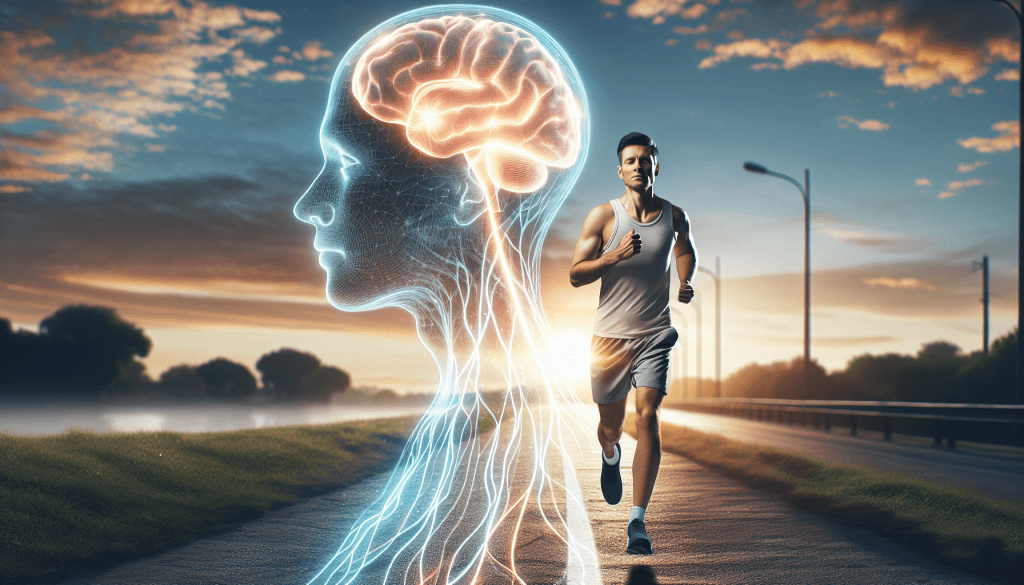What Is The Impact Of Regular Exercise On Cognitive Function?
Regular exercise has a profound impact on cognitive function, enhancing memory, focus, and overall brain health.
It’s not just about building muscles or shedding pounds—exercise fuels the brain, sharpening your mental edge.
But how exactly does moving your body improve your mind? Let’s dive into the science, benefits, and practical tips to keep your brain in top shape.
Key Takeaways
- Exercise improves memory, thinking skills, and overall brain health.
- It reduces the risk of cognitive decline and neurodegenerative diseases.
- Different types of exercise, like aerobic and resistance training, offer unique cognitive benefits.
- Outdoor and indoor workouts both contribute to mental clarity in distinct ways.
- Consistency and variety in exercise routines maximize cognitive benefits.
Introduction to Exercise and Cognitive Function
Definition of Cognitive Function
Cognitive function refers to the brain’s ability to process information, remember things, solve problems, and make decisions.
It’s what allows you to learn new skills, focus on tasks, and adapt to challenges.
Think of it as the engine that powers your mental performance.
Overview of the Relationship Between Exercise and Brain Health
Exercise and brain health are like peanut butter and jelly—they just go together.
When you exercise, your body pumps more blood to the brain, delivering oxygen and nutrients that help it function better.
Physical activity also triggers the release of chemicals like endorphins and brain-derived neurotrophic factor (BDNF), which promote brain cell growth and repair.
Importance of Understanding the Impact of Regular Exercise
Understanding how exercise affects the brain is crucial for anyone who wants to stay sharp, whether you’re a student prepping for exams or an older adult aiming to keep your memory intact.
By incorporating regular physical activity into your routine, you can unlock a treasure trove of mental benefits that go beyond just feeling good.

How Exercise Enhances Cognitive Function
Improved Memory and Thinking Skills
Mechanisms Behind Memory Enhancement
Exercise stimulates the hippocampus, the part of the brain responsible for memory and learning.
This boost in activity helps you retain information better and recall it faster.
Research has shown that even moderate physical activity can increase the size of the hippocampus, improving memory performance (source).
Examples of Cognitive Improvements Across Age Groups
Kids who play sports often perform better in school, while adults who exercise regularly report sharper focus at work.
For seniors, activities like walking or swimming can delay age-related memory loss and even improve problem-solving skills.
Boosted Brain Health and Reduced Risk of Cognitive Decline
Role of Exercise in Preventing Neurodegenerative Diseases
Regular physical activity has been linked to a lower risk of Alzheimer’s and Parkinson’s diseases.
Exercise reduces inflammation and oxidative stress, two factors that contribute to neurodegeneration.
According to a study published in PubMed, exercise can slow the progression of cognitive decline in individuals at risk.
Long-Term Benefits of Consistent Physical Activity
The benefits of exercise aren’t just short-lived.
Sticking to a routine over the years can lead to better brain health in the long run, keeping your mind agile and resilient as you age.

Types of Exercise and Their Cognitive Benefits
Aerobic Exercise
Effects on Brain Plasticity and Memory
Aerobic activities like running or cycling increase brain plasticity, which is the brain’s ability to adapt and form new connections.
This is crucial for learning and memory.
Examples of Aerobic Activities for Cognitive Health
Jogging, swimming, dancing, or even brisk walking are excellent choices.
These activities not only improve your cardiovascular health but also give your brain a much-needed boost.
Resistance Training
Impact on Executive Function and Decision-Making
Lifting weights or doing bodyweight exercises can enhance executive functions like planning, decision-making, and multitasking.
Benefits for Older Adults
For older adults, resistance training can improve muscle strength and cognitive flexibility, making daily tasks easier and safer.
Mind-Body Exercises (e.g., Yoga, Tai Chi)
Stress Reduction and Mental Clarity
Mind-body exercises like yoga and tai chi are fantastic for reducing stress and improving mental clarity.
They combine physical movement with mindfulness, helping you stay present and focused.
Enhanced Focus and Mindfulness
These exercises train your brain to concentrate better, which can spill over into other areas of your life, like work or school.

Outdoor vs. Indoor Exercise for Cognitive Function
Benefits of Outdoor Exercise
Exposure to Nature and Its Impact on Mental Health
Exercising outdoors, whether it’s hiking or jogging in the park, connects you with nature.
This exposure can reduce stress and improve mood, which in turn enhances cognitive performance.
Role of Sunlight in Boosting Mood and Cognition
Sunlight triggers the production of serotonin, a hormone that boosts mood and focus.
So, a morning run outside can be a double win for your brain and body.
Indoor Exercise Advantages
Accessibility and Consistency
Indoor workouts, like gym sessions or home fitness routines, are more accessible and easier to stick with, especially during bad weather.
Controlled Environments for Specific Training
Gyms offer controlled environments where you can focus on specific goals, like building strength or improving endurance, without distractions.

Maximizing Cognitive Benefits Through Exercise
Importance of Variety in Physical Activities
Combining Aerobic, Resistance, and Flexibility Training
Mixing different types of exercise keeps things interesting and targets various aspects of brain health.
For example, you might do yoga on Mondays, lift weights on Wednesdays, and go for a run on Fridays.
Tailoring Exercise Routines to Individual Needs
Everyone’s brain and body are different.
Finding activities you enjoy ensures you’ll stick with them, reaping the cognitive rewards.
Consistency and Routine
Frequency and Duration for Optimal Results
Experts recommend at least 150 minutes of moderate exercise per week for optimal brain health.
Research on Short Bouts of Physical Activity and Immediate Effects
Even short bursts of activity, like a 10-minute walk, can improve focus and mood almost instantly.
This makes exercise a great tool for combating midday slumps.
Special Considerations for Older Adults and Individuals with Cognitive Impairments
For older adults or those with cognitive challenges, low-impact activities like tai chi or water aerobics can be particularly beneficial.
Conclusion
Recap of the Cognitive Benefits of Regular Exercise
From improving memory to reducing the risk of cognitive decline, exercise is a powerful tool for brain health.
It’s like a mental multivitamin, offering benefits for people of all ages.
Encouragement to Incorporate Exercise into Daily Life
Whether it’s a morning jog, a yoga class, or a quick walk during lunch, every bit of movement counts.
The key is to find activities you enjoy and make them a regular part of your routine.
Final Thoughts on the Role of Exercise in Maintaining Brain Health
Your brain is your most valuable asset, and exercise is one of the best ways to protect and enhance it.
So, lace up those sneakers, roll out that yoga mat, or grab those dumbbells—your brain will thank you!
For more insights on how physical activity boosts mental health, check out this guide or explore strategies for enhancing cognitive function.
FAQ: Unlocking the Connection Between Regular Exercise and Cognitive Function
How does regular exercise improve cognitive function?
Regular exercise enhances blood flow to the brain, delivering oxygen and nutrients that support brain health. It also stimulates the release of brain-derived neurotrophic factor (BDNF), a protein that promotes the growth and survival of neurons, leading to improved memory, focus, and overall cognitive abilities.
Can exercise help prevent cognitive decline with age?
Yes, studies show that regular physical activity can slow age-related cognitive decline. Exercise helps maintain brain plasticity, reduces inflammation, and combats risk factors like high blood pressure and diabetes, which are linked to conditions such as dementia and Alzheimer’s disease.
What types of exercise are most beneficial for cognitive health?
Aerobic exercises like walking, running, and cycling are particularly effective for cognitive health. However, strength training and activities like yoga or tai chi, which combine physical movement with mental focus, also contribute to improved brain function.
How much exercise is needed to see cognitive benefits?
Experts recommend at least 150 minutes of moderate-intensity aerobic exercise per week, combined with muscle-strengthening activities twice a week. Even shorter, consistent sessions can yield cognitive benefits over time.
Does exercise improve focus and concentration in the short term?
Yes, even a single session of exercise can boost focus and concentration. Physical activity increases the release of neurotransmitters like dopamine and serotonin, which enhance mood and mental clarity, making it easier to stay focused on tasks.
How does exercise impact mental health and its connection to cognitive function?
Exercise reduces stress, anxiety, and depression, all of which can negatively affect cognitive function. By improving mental health, exercise creates a more favorable environment for the brain to process and retain information effectively.
Can exercise improve memory and learning abilities?
Yes, regular exercise has been shown to enhance memory and learning by increasing the size of the hippocampus, the brain region responsible for these functions. It also improves neural connections, making it easier to absorb and recall information.
Is there a link between exercise and creativity?
Research suggests that exercise can boost creativity by enhancing divergent thinking, which is the ability to generate multiple solutions to a problem. Physical activity clears the mind and promotes mental flexibility, fostering creative thought processes.
Are there specific benefits of exercise for children’s cognitive development?
Absolutely. Exercise in children supports brain development, improves attention span, and enhances academic performance. Activities like sports and active play also help develop critical thinking and problem-solving skills at an early age.
Can exercise benefit cognitive function in people with neurological conditions?
Yes, exercise can be beneficial for individuals with neurological conditions like Parkinson’s disease, multiple sclerosis, or stroke. It helps improve motor skills, mood, and cognitive abilities, while also slowing the progression of certain symptoms.



